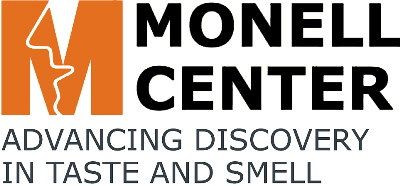Newswise — PHILADELPHIA (December 19, 2018) – The Monell Center and Thomas Jefferson University announce the funding of five collaborative pilot grants for projects that combine Monell’s research on the senses of taste and smell with Jefferson’s complementary strengths in the basic and clinical neurosciences.
The two institutions signed an Agreement of Cooperation in August 2018 with the intent of building translational research opportunities to address pressing health challenges. Implementation of the collaborative grant program, with each project involving at least one faculty member from Jefferson and one from Monell, was an integral part of the agreement.
“Working together, Monell and Jefferson will accelerate the translation of basic science on taste and smell into clinical outcomes that advance our shared vision of improving human health,” said Robert Margolskee, MD, PhD, President and Director of the Monell Center. “It is gratifying to see this first set of exciting and innovative projects.”
Funded jointly by Monell and Jefferson, the collaborative grant program was originally intended to approve four projects. Each proposal was reviewed by a panel of four Jefferson and four Monell scientists, who were so impressed with the submissions that they moved the following five projects forward:
- People with neurodegenerative disease lose their sense of smell long before other symptoms appear – one team asks if amyotrophic lateral sclerosis (ALS) can be diagnosed in its early stages by testing for smell loss;
- Bitter oral medicines can make kids spit out life-saving medication – one team explores how to block many different bitter receptors at once, by targeting universal molecular mechanisms inside all bitter taste cells;
- Patients with a rare cancer-like disease of the nose called sinonasal inverted papilloma (SNIP) require frequent and invasive follow up. One team will explore whether certain compounds released by the rapidly growing tissue could serve as a less invasive diagnostic to monitor recurrence of the disease;
- Chemotherapy for cancer can negatively affect taste perception, which often affects a patient’s diet, nutrition, and overall health. One team will look at immune system pathways that may explain why many kinds of chemo have a similar effect on taste. The findings could help identify ways to improve the nutritional health and recovery of cancer patients;
- Not much is known about how sour taste is perceived. One team will test an idea to verify a new sour receptor. If successful, the findings could help identify ways to manipulate the off-putting sour taste of certain healthy foods and medicines.
Each team was awarded between $30,000 and $50,000 for a one-year period, with the intention of moving forward to collaborative grant applications and publications.
“The Farber Institute for Neurosciences is among our most robust and successful programmatic centers, and yet expertise in smell and taste has not been a historic strength here,” said Steven B. McMahon, PhD, Senior Associate Provost for Programmatic Science at Jefferson. “Partnering with Monell provides that missing piece of the puzzle, and you can see from these pilot projects that there are already some remarkable synergies emerging.”
The Monell Chemical Senses Center is an independent nonprofit basic research institute based in Philadelphia, Pennsylvania. Founded in 1968 and now celebrating its 50th anniversary, Monell builds on its legacy of advancing scientific understanding of the mechanisms and functions of taste and smell to benefit human health and well-being. Using an interdisciplinary approach, scientists collaborate in varied programmatic areas to make world-class research breakthroughs that improve lives. Among the areas of focus is the new field of sensory nutrition, where Monell science is driving significant advances to address global nutritional health by combining its expertise in the sensory drivers of food intake with innovative research in nutrient detection, metabolism, appetite, and food choice. Another recent initiative focuses on identifying treatments for anosmia, loss of the sense of smell. For more information about Monell, visit www.monell.org.
Jefferson (Philadelphia University + Thomas Jefferson University) is a leader in interdisciplinary, professional education. Jefferson, home of the Sidney Kimmel Medical College and the Kanbar College of Design, Engineering and Commerce, is a preeminent university delivering high-impact education in 160 undergraduate and graduate programs to 8,400 students in architecture, business, design, engineering, fashion, health, medicine, social sciences and textiles. The new Jefferson is re-defining the higher education value proposition with an approach that is collaborative and active; increasingly global; integrated with industry; focused on research across disciplines to foster innovation and discovery; and technology-enhanced. Student-athletes compete as the Jefferson Rams in the NCAA Division II Central Atlantic Collegiate Conference.
